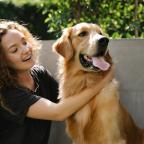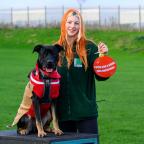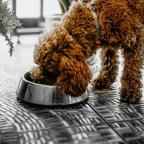
Five ways to help your dog on Bonfire Night
Bonfire Night can be highly stressful for dogs and owners alike. To make matters worse, firework displays don’t just take place on one day - they can be spread across a period of about a week. The effects of this can lead to some dogs becoming frightened and unhappy, and can impact on training.
The good news, according to Danny Nelis-Rouse, co-owner and managing director at interactive dog toy company Tug-E-Nuff, is there are quick and simple ways to minimise the stress caused to your dog during fireworks season.
Five ways to help your dog on Bonfire Night
- Go for an early walk “Now the darker nights have set in, many of us will be opting for earlier walks than usual and this can be a particularly good idea around Bonfire Night. “It’s important that dogs are indoors where they are safe and secure before any fireworks start. If you do walk in the dark on Bonfire Night, it’s a good idea to keep your dog on a lead.”
- Act normal “Your dog will react to your body language, and if you seem worried, it will make them feel worse. Stay calm, behave as normally as possible and follow your dog’s lead. “If your dog is giving off nervous energy or you need to redirect their attention, consider reaching for your dog’s favourite toy. Play can both provide distraction and help your dog form positive associations with the noise.”
- Use distraction techniques “Close your curtains or blinds to limit the flashes and explosions, and reduce the stimulation your dog is exposed to. Keeping the television or radio on in the background to drown out some of the noise and provide a sense of normality too. “Don’t underestimate the power of play either! Interactive toys like Tug-E-Nuff’s The Clam are brilliant for helping to keep your dog distracted whilst building positive associations to the bangs on fireworks night.”
- Provide a den “Your dog might want to hide away under a bed or in a crate with a blanket draped over the top to feel more secure and you shouldn’t try to coax them out before they are ready. “If you don’t have a space like this for your dog to go to, you can try setting up a cosy area in the quietest area of the house - remember to do this before fireworks night, so your dog has time to get used to it.”
- Create positive associations “Helping your dog overcome a fear of loud noises like fireworks is something that takes time, so think about putting a long-term plan in place to gradually introduce loud noises to your dog in a way that builds their confidence. “For example, introduce noises slowly and initially at a very low volume, and match tolerating them with a calming reward. You won’t see instant results, but if you put the effort in, you should notice a big difference by the time Bonfire Night comes round.”







